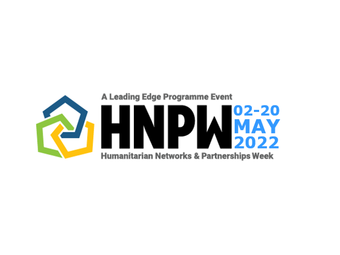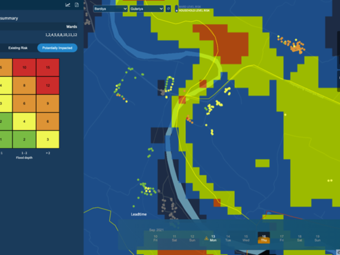Anticipatory action at Humanitarian Networks and Partnerships Week 2022
For anticipatory action to increase in scale, it will need to be adopted even more widely within the humanitarian sector. Encouragingly, it was identified as an “area of common concern” at Humanitarian Networks and Partnerships Week 2022, which took place in Geneva, Switzerland, from 9-13 May.
The growing interest in this theme was reflected in the event’s programme, with several sessions zooming in on different aspects of anticipatory action relevant to humanitarians. One of these is data, which is required to forecast events and determine which communities should be targeted by anticipatory action, among other uses. In many countries, global datasets are used to fill gaps in local data, but these are not always at the resolution needed for effective local actions.
During the session ‘Bridging the gap through partnership: from global to local data for anticipatory action’, Clayton Lumwaya from the Zambia Red Cross Society and Likezo Musumbani from the Zambia Disaster Management and Mitigation Unit explained how they use local data in their projects. “The incorporation of local data has been key in disaster response and disaster risk reduction,” explained Clayton. “Technical support from 510, stakeholder engagement and buy-in from the government have also greatly contributed to the successful implementation of early warning and early action mechanisms in Zambia, for example through the use of impact-based forecasting systems.”
Earlier in the day, the Anticipation Hub presented its work and, through a mix of conversation and creativity, asked the attendees (online and in person) to help identify the current gaps around a series of thematic areas for anticipatory action: (1) protection, gender and inclusion; (2) data localization; (3) conflict; (4) disaster risk financing; (5) impact-based forecasting; and (6) health. This exercise generated several clear needs, which will help the Anticipation Hub to better meet its users' needs going forward, as we work with partners to scale up anticipatory action within the humanitarian sector and beyond.
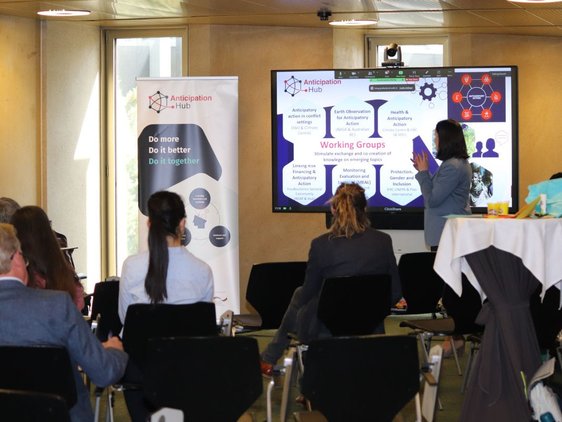
Anticipatory action at Humanitarian Networks and Partnerships Week 2022. © Anticipation Hub/Tim Woods
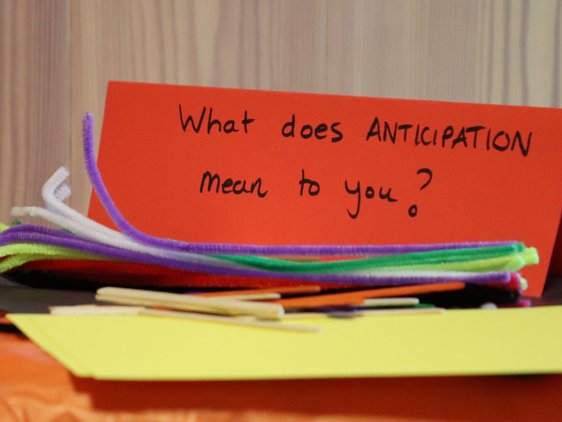
Anticipatory action at Humanitarian Networks and Partnerships Week 2022. © Anticipation Hub/Tim Woods
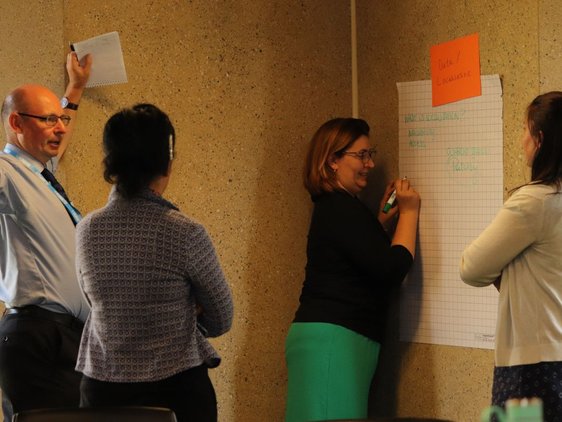
Anticipatory action at Humanitarian Networks and Partnerships Week 2022. © Anticipation Hub/Tim Woods
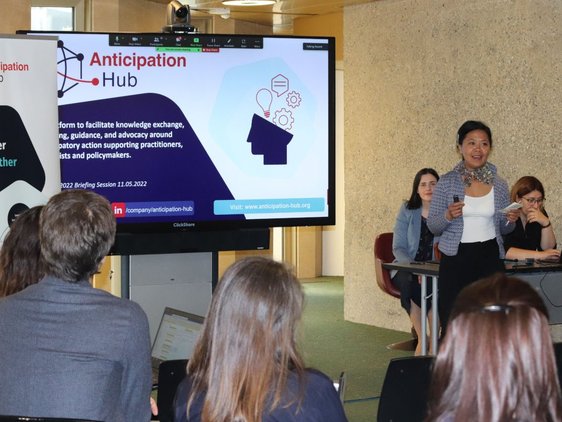
Anticipatory action at Humanitarian Networks and Partnerships Week 2022. © Anticipation Hub/Tim Woods
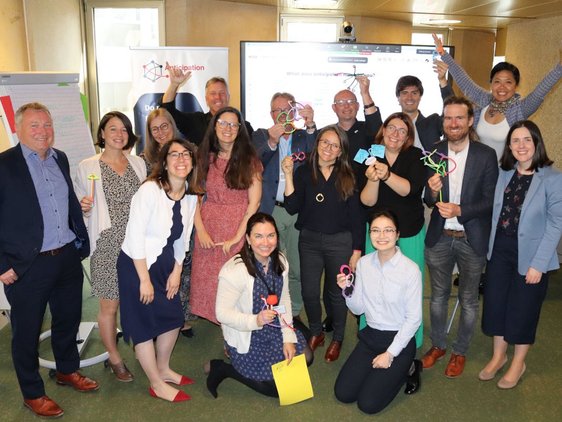
Anticipatory action at Humanitarian Networks and Partnerships Week 2022. © Anticipation Hub/Tim Woods

Anticipatory action at Humanitarian Networks and Partnerships Week 2022. © Anticipation Hub/Tim Woods
Anticipatory action at Humanitarian Networks and Partnerships Week 2022. © Anticipation Hub/Tim Woods
Anticipatory action at Humanitarian Networks and Partnerships Week 2022. © Anticipation Hub/Tim Woods
Anticipatory action at Humanitarian Networks and Partnerships Week 2022. © Anticipation Hub/Tim Woods
Anticipatory action at Humanitarian Networks and Partnerships Week 2022. © Anticipation Hub/Tim Woods

